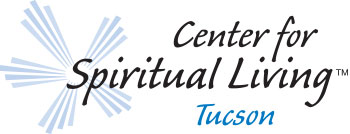Garbage In, Garbage Out: Media, Influence, and Choosing Our Input by Chris Wheeler
 “Garbage in, garbage out” is one of the first phrases many computer science students learn. It’s a simple truth: computers will process whatever data they’re given—regardless of its quality. Bad input leads to bad output.
“Garbage in, garbage out” is one of the first phrases many computer science students learn. It’s a simple truth: computers will process whatever data they’re given—regardless of its quality. Bad input leads to bad output.
My interest in what used to be called “mass communications” began in high school, thanks to a teacher who made a strong impression on me. That teacher introduced our class to Marshall McLuhan, famous for his deep insights into media and its effects. We learned about the advertising industry and its carefully crafted messages designed to shape the perspectives of consumers.
One example has always stuck with me: Saturday morning commercials targeted at kids. These ads would show only the hands of a child playing with a toy, filmed from behind to simulate the viewer’s own perspective. The message was clear—imagine yourself owning and enjoying this toy.
When my children were young and we watched similar advertisements, I’d often ask them, “Whose hands are those?” It became a running question in our household, a reminder to look critically at the media we consume.
Today, the influence of mass communications has expanded far beyond television. Social media, constant notifications, and curated headlines surround us. I find myself mostly skimming headlines now, but sometimes a single image or mismatched photo stops me. Recently, I noticed a news photo that seemed entirely disconnected from its headline. Whether intentional or not, this is a reminder: news and media are often packaged to provoke reactions and drive profit, not just to inform.
Turning the Lens Inward
But there’s good news: perspective, self-talk, and thoughts are things we can influence. Modern stressors are now permanent features in the landscape of our lives, but our response is still up to us. Practicing mindfulness and what Science of Mind teaches—a mental recalibration—helps me reset and regain clarity.
Imagine if we consciously chose better inputs:
• Build our world on collaboration.
• Build our media on truth and understanding.
• Shape social platforms around positive connection.
• Use technology for empowerment.
• Consume foods that promote health and healing.
• Foster cultures rooted in creativity.
It all starts with the input we allow into our minds. We can’t always control what’s out there, but we can choose how we engage with it—and what we pass along.
–Chris Wheeler




